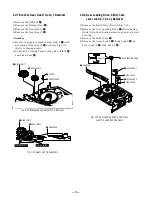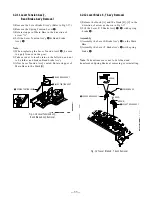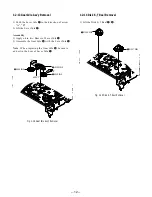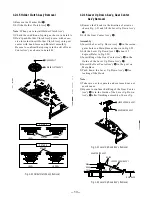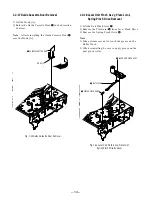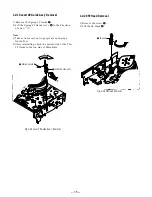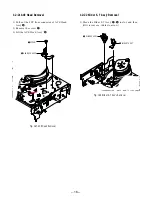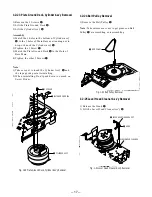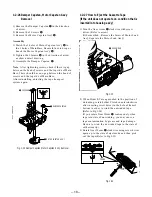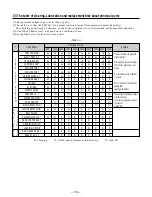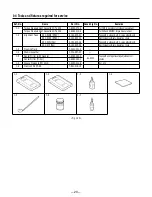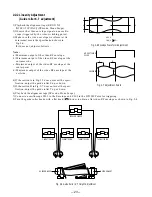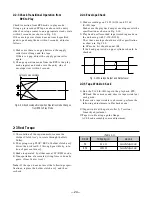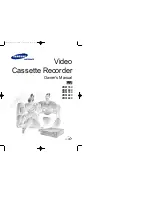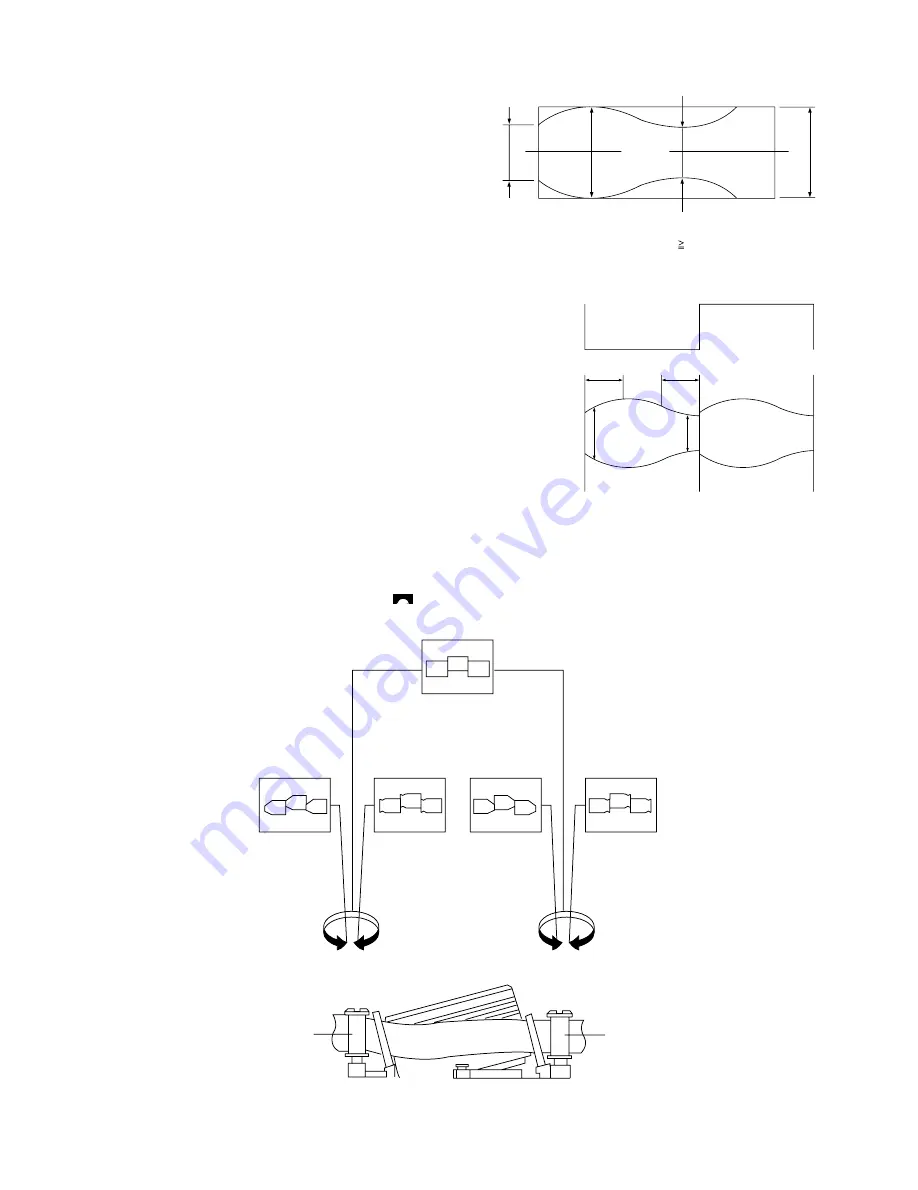
– 23 –
2-2-2 Linearity Adjustment
(Guide roller S, T adjustment)
1) Playback the alignment tape (KRV-51N2
(NTSC)/51P (PAL)) (SP mode, Mono Scope).
2) Observe the video envelope signal on an oscillo-
scope (triggered by the video switching pulse).
3) Make sure the video envelope waveform (at its
minimum) meets the specification shown in
Fig. 2-6.
If it does not, adjust as follows :
Note :
a=Maximum output of the video RF envelope.
b=Minimum output of the video RF envelope at the
entrance side.
c=Minimum output of the video RF envelope at the
center point.
d=Maximum output of the video RF envelope at the
exit side.
4) If the section A in Fig. 2-7 does not meet the speci-
fication, adjust the guide roller S up or down.
5) If the section B in Fig. 2-7 does not meet the speci-
fication, adjust the guide roller T up or down.
Fig. 2-6 Envelope Waveform Adjustment
a
a b c d
c,b,d/a 63%
b
c
d
Fig. 2-7 Adjustment Points
A
B
A
B
H'D SWITCHING
PULSE
ENVELOPE
6) Play back the alignment tape (SP mode, Mono Scope).
7) Connect an oscilloscope CH-1 to the Envelope and CH-2 to the H’D SW Pulse for triggering.
8) Turn the guide roller heads with a flat head ( ) driver to obtain a flat video RF envelope as shown in Fig. 2-8.
Fig. 2-8 Guide Roller S, T Height Adjustment
IDEAL ENVELOPE
S HEIGHT TOO HIGH
S HEIGHT TOO LOW
T HEIGHT TOO HIGH
T HEIGHT TOO LOW
GUIDE ROLLER S
GUIDE ROLLER T

